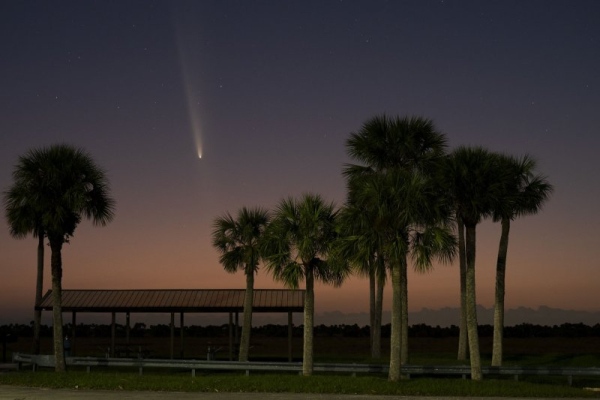
Skywatchers are in for a celestial treat this week with a unique occurrence of two comets, marking the end of a nearly year-long period without easily visible comets.
The comets C/2025 A4, called “Lemmon,” and its companion C/2025 R2, known as “Swan,” will reach their nearest proximity to Earth after being spotted by astronomers earlier in the year.
Swan, the fainter comet, will approach the planet on Monday, preceding Lemmon’s anticipated arrival on Tuesday. These close encounters are being broadcasted live for viewing audiences.
“Residing in the Northern hemisphere, I have been able to admire C/2025 A6 Lemmon alone, but C/2025 R2 Swan is rapidly joining the display, and we’re eager to amaze every astronomy enthusiast with our live broadcast!” said astronomer Gianluca Masi to Space.com.
Their period of peak brightness will extend from Monday through Tuesday.
Lemmon, which was first observed in January of this year, will pass about 56 million miles from Earth, while Swan will come even closer, at approximately 24 million miles away. It, too, was identified just last month.
According to experts, Comet Swan, which has an orbital period of 20,000 years, will be best observed in the pre-dawn hours as it recedes from the sun.
However, specialists also noted that the optimal time to observe both comets on any night this week would be approximately an hour and a half following sunset.
Sourse: www.upi.com





